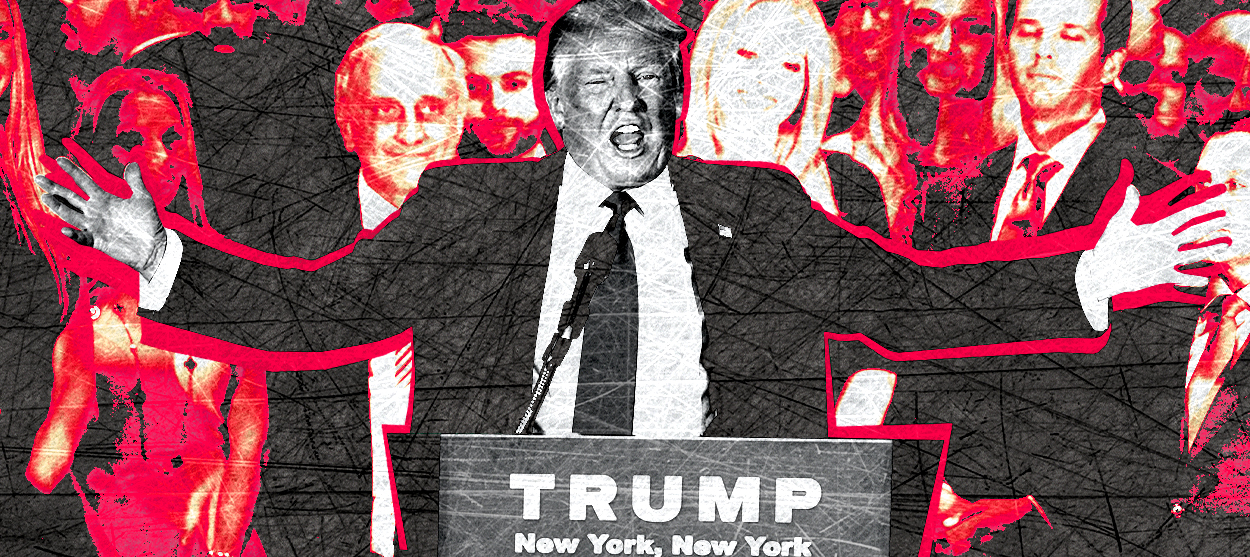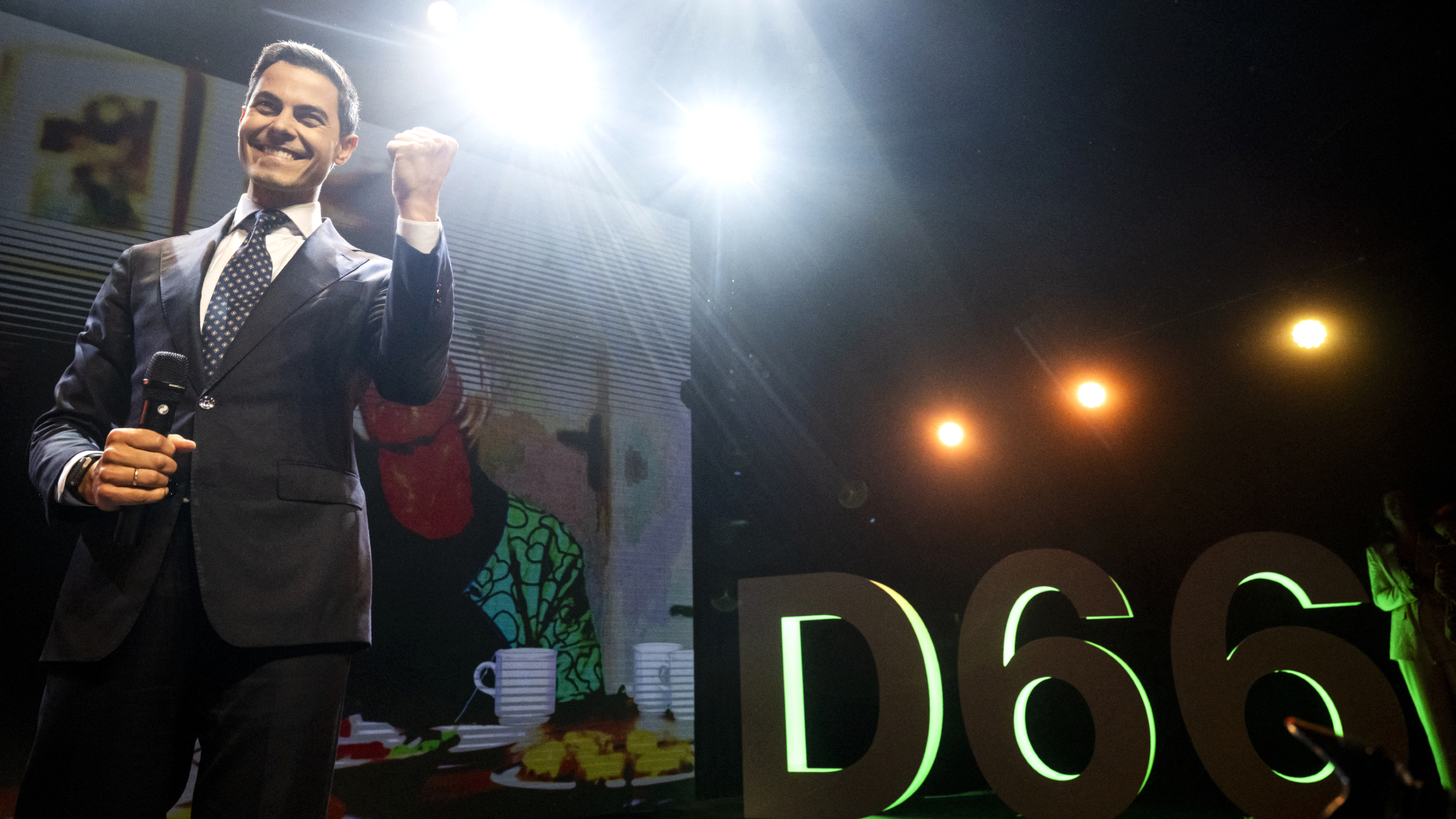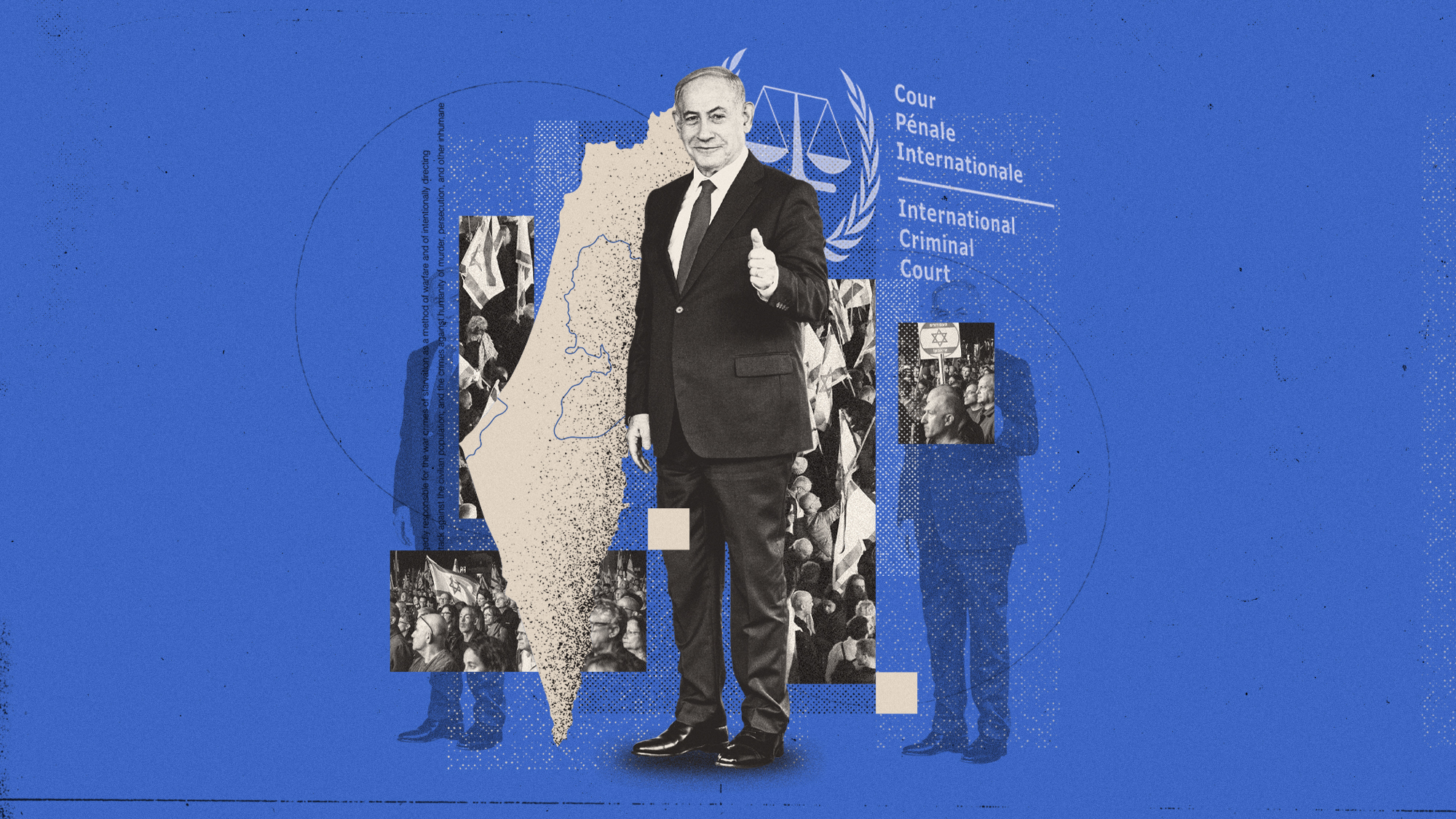The 'Flight 93' election has ended in disaster
Revisiting the most influential pro-Trump essay of 2016 amid the pandemic


A free daily email with the biggest news stories of the day – and the best features from TheWeek.com
You are now subscribed
Your newsletter sign-up was successful
Easily the most influential pro-Trump essay of the 2016 election cycle was "The Flight 93 Election" by the pseudonymous author Publius Decius Mus (later revealed to be author Michael Anton, who went on to serve on Donald Trump's national security council — and who, 16 years prior to that, was my boss when I briefly served as a speechwriter for then-New York Mayor Rudy Giuliani).
The essay, a masterpiece of lurid metaphor and ideological hysteria, made, at its core, a very simple argument: Democratic presidential nominee Hillary Clinton was the equivalent of a terrorist hijacker who, if given control of our plane/country, was certain to kill us all. Empowering Trump's campaign to defeat her was very risky as well, but with Trump seizing the cockpit, the country — and above all, the country's conservatives — had a shot at survival: "With Trump, at least you can … take your chances."
This argument was always comically overwrought and wildly irresponsible, but now, just a few months shy of a full term in office for the Trump administration, it's possible to assess the consequences of tens of millions of Republicans taking their chances on a man unfit in every way (morally, intellectually, temperamentally) to serve as president of the United States. Those consequences are clear: Trump has sent the country into a nosedive from which it is increasingly unlikely to recover.
The Week
Escape your echo chamber. Get the facts behind the news, plus analysis from multiple perspectives.

Sign up for The Week's Free Newsletters
From our morning news briefing to a weekly Good News Newsletter, get the best of The Week delivered directly to your inbox.
From our morning news briefing to a weekly Good News Newsletter, get the best of The Week delivered directly to your inbox.
Which means that the Flight 93 election has ended in national disaster.
Now, it's true, of course, that Anton constructed the scenario in such a way that rendering such a harsh judgment of it — or really any judgment of it at all — is impossible. Disaster with Clinton was a certainty. Disaster with Trump was likely. If it was averted with Trump, those who backed him would deserve the credit. But if it wasn't averted, well then, at least conservatives had tried for something better and gone down fighting, just like the doomed heroes on the real Flight 93.
It's this style of self-justifying and self-exonerating madman's logic — along with its cacophony of clashing murderous metaphors (by the end of the essay's second short paragraph, the image of terrorist hijacking has already been supplanted by talk of "Russian Roulette played with a semi-auto") — that inspired Rush Limbaugh to read close to the entirety of the essay on his radio program when it first appeared. Here was an argument that portrayed right-wing American voters as brave soldiers taking a noble risk for the good of the nation by … casting a vote in favor of a reality-show conman. How much did those voters have to hate America's political establishment, the administrative state, and what the essay sneeringly described as "Conservatism, Inc.," in order for that to sound like a reasonable proposition?
They had to hate all of it enough to risk putting Donald Trump in charge of the federal government when they had no idea how well or poorly he might handle a crisis. I mean a real national crisis, not the mostly imaginary crises drummed up by ideological entertainers like Limbaugh, who make millions pumping political toxins into the minds of their listeners week after week, month after month, year after year. I mean a crisis like a serious war with a major power — or a deadly pandemic arriving on American shores.
A free daily email with the biggest news stories of the day – and the best features from TheWeek.com
It's all well and good to have some political fun playacting The Imminent End of the Republic with Hillary Clinton cast in the role of a female Snidely Whiplash. But really, what exactly did Anton think Clinton would do to destroy the country if she won? "A Hillary presidency will be pedal-to-the-metal on the entire Progressive-left agenda, plus items few of us have yet imagined in our darkest moments." So in other words … mostly more of the same old, same old. She'd be a Democrat — a member of one of America's two parties pursuing its standard list of policy priorities. I fully grasp that for someone who disagrees strongly with that agenda, this might sound unappealing, maybe even quite bad, for the country. But the baseline of this judgment is normalcy: All things being equal, conservatives think a conservative president is vastly better.
But what about when things are not normal or equal? What about when something bad happens — not in "the narrative," which can be spun by professional and amateur propagandists, but in the real world of hard facts and natural processes beyond our capacity to manipulate for partisan gain?
To answer that question, let's consider New York Gov. Andrew Cuomo, as much an establishment Democrat as Hillary Clinton ever was. Early on in the pandemic, Cuomo received a lot of good press for his frontline handling of the outbreak. But before long, the praise became mixed with criticism over the breathtakingly high death toll in his state, and especially for his (in retrospect, possibly) foolish decision to order nursing homes to take COVID patients. This has led conservatives both to denounce him for incompetence and to mock the mainstream media for lionizing him.
Fair enough. Cuomo undoubtedly made mistakes in responding to a serious crisis as it unfolded in real time. Some of those mistakes may have been quite bad. Yet thoroughness demands that his handling of the pandemic be judged comparatively and in light of where the state has ended up several months out from the worst of the first wave. And by that standard, the New York experience looks comparable to that of many European countries that were also hit hard early on but have come through the pandemic to something at least approaching normalcy. Italy, Belgium, and New York state all had very high early peaks in daily new cases and fatalities that were drastically reduced through strictly enforced lockdowns and widespread testing.
The same cannot at all be said about a very long list of states over the past couple of months, or about the nation as a whole, all of which are moving in the diametrically opposite direction. Donald Trump is overseeing a national disaster the scale of which boggles the mind and surpasses what we're seeing in any other country of the world — and with no end in sight.
I'm on the record making the argument that the blame for this deserves to be spread widely and attributed in part to deep seated, civically pathological tendencies in American culture. But that doesn't at all mean the president gets off scot free. He could be fighting the trends rather than making them far worse — doing what he could to encourage mask-wearing instead of discouraging it, to get a national testing and tracing program up and running rather than thwarting it, to give schools the funds they need to open safely this fall instead of threatening to cut their funding if they don't open period. Instead, he's amplifying and augmenting our country's worst habits and prejudices, cheering on epidemiologically irresponsible behavior, and (most recently) taking aim at Dr. Anthony Fauci, the person in the Trump administration who has done more than anyone else to respond professionally and responsibly to the public health crisis that confront us.
I said at the start that Trump has sent the country into a nosedive from which it is increasingly unlikely to recover. But that's the same kind of hyperbolic catastrophism that fueled Anton's essay. The unmetaphorical truth is that Donald Trump's victory in 2016 didn't set the nation on the path of utter destruction any more than Hillary Clinton's would have. It merely gave us a president who will end up being significantly responsible for hundreds of thousands of deaths, for economic pain and suffering the scope of which will take years or decades to tally, and for vastly accelerating the decline of the United States as a global power.
Having a president as morally repulsive as Trump has also greatly accelerated leftward trends in public opinion and within the Democratic Party that Anton feared would gain ground with a Clinton victory. Progressive activists are in a much stronger position now than they were four years ago, and they're poised to carry considerably greater power and influence into a Biden administration next January.
In just about every respect, following Michael Anton's advice to storm the cockpit has been terrible for the country he professed to want to save.
Damon Linker is a senior correspondent at TheWeek.com. He is also a former contributing editor at The New Republic and the author of The Theocons and The Religious Test.
-
 Political cartoons for February 15
Political cartoons for February 15Cartoons Sunday's political cartoons include political ventriloquism, Europe in the middle, and more
-
 The broken water companies failing England and Wales
The broken water companies failing England and WalesExplainer With rising bills, deteriorating river health and a lack of investment, regulators face an uphill battle to stabilise the industry
-
 A thrilling foodie city in northern Japan
A thrilling foodie city in northern JapanThe Week Recommends The food scene here is ‘unspoilt’ and ‘fun’
-
 Japan’s Takaichi cements power with snap election win
Japan’s Takaichi cements power with snap election winSpeed Read President Donald Trump congratulated the conservative prime minister
-
 How realistic is the Democratic plan to retake the Senate this year?
How realistic is the Democratic plan to retake the Senate this year?TODAY’S BIG QUESTION Schumer is growing bullish on his party’s odds in November — is it typical partisan optimism, or something more?
-
 The billionaires’ wealth tax: a catastrophe for California?
The billionaires’ wealth tax: a catastrophe for California?Talking Point Peter Thiel and Larry Page preparing to change state residency
-
 Bari Weiss’ ‘60 Minutes’ scandal is about more than one report
Bari Weiss’ ‘60 Minutes’ scandal is about more than one reportIN THE SPOTLIGHT By blocking an approved segment on a controversial prison holding US deportees in El Salvador, the editor-in-chief of CBS News has become the main story
-
 Has Zohran Mamdani shown the Democrats how to win again?
Has Zohran Mamdani shown the Democrats how to win again?Today’s Big Question New York City mayoral election touted as victory for left-wing populists but moderate centrist wins elsewhere present more complex path for Democratic Party
-
 Dutch center-left rises in election as far-right falls
Dutch center-left rises in election as far-right fallsSpeed Read The country’s other parties have ruled against forming a coalition
-
 Millions turn out for anti-Trump ‘No Kings’ rallies
Millions turn out for anti-Trump ‘No Kings’ ralliesSpeed Read An estimated 7 million people participated, 2 million more than at the first ‘No Kings’ protest in June
-
 Has the Gaza deal saved Netanyahu?
Has the Gaza deal saved Netanyahu?Today's Big Question With elections looming, Israel’s longest serving PM will ‘try to carry out political alchemy, converting the deal into political gold’
